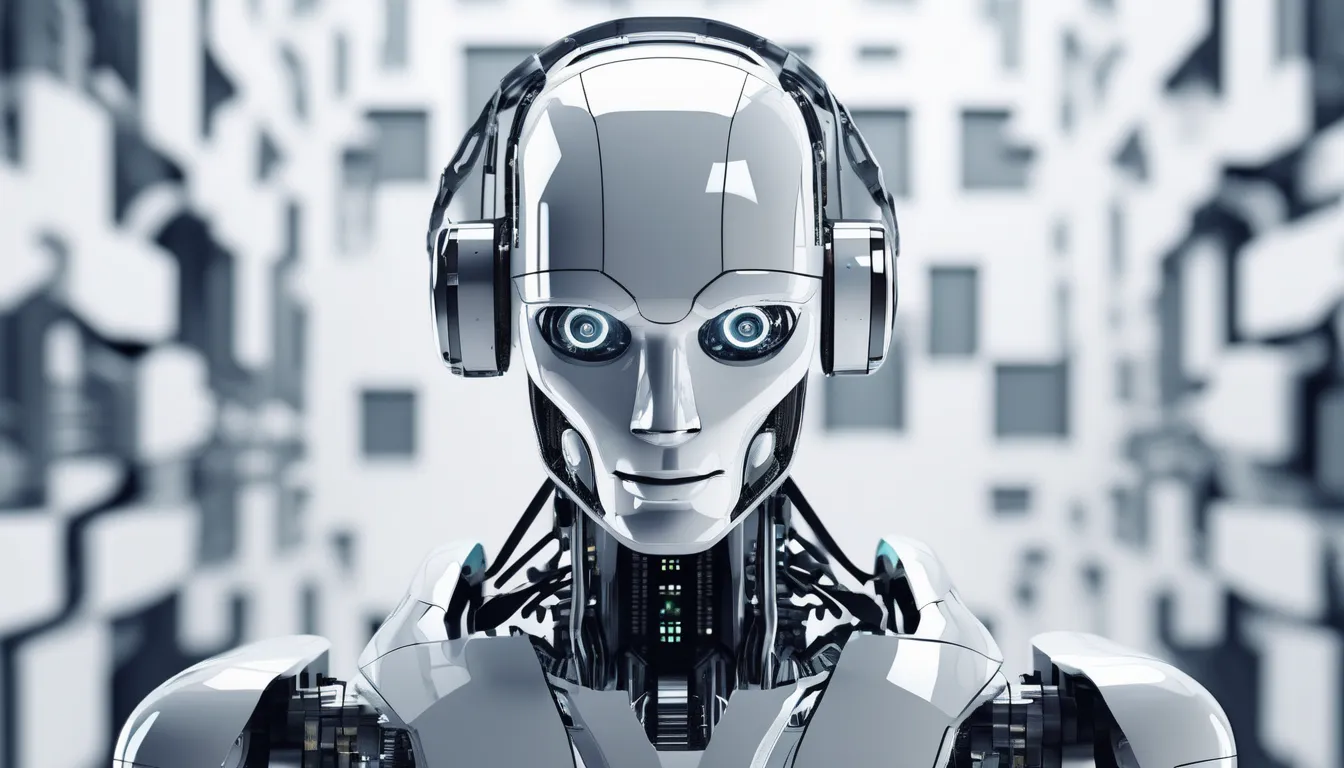When you consider the architects of AI, it’s fascinating to recognize how a few visionary leaders and innovators have profoundly influenced this field. From pioneers like Alan Turing to contemporary figures such as Geoffrey Hinton, each has contributed unique insights and groundbreaking innovations that shape our technological landscape. Yet, alongside these advancements, ethical considerations are rising to the forefront, prompting a critical conversation about responsibility in AI development. What challenges and opportunities lie ahead as we navigate this complex terrain? The answers might surprise you.
Pioneers of AI Technology
When you delve into the world of artificial intelligence, you can’t help but marvel at the pioneers who l AI VIPs d the groundwork for this revolutionary technology. These visionaries dared to dream of machines that could think, learn, and adapt. Their contributions span various fields, from mathematics to computer science, forming the essential building blocks of AI.
One key development was the creation of algorithms that enable machines to process and analyze vast amounts of data. You’ll find these algorithms at the heart of many AI applications today.
Another significant leap came with the advancement of neural networks, inspired by the human brain’s structure. This innovation has transformed machine learning, allowing systems to recognize patterns and improve over time.
Furthermore, the early explorations into natural language processing opened up new avenues for human-computer interaction. You can see this in voice-activated assistants and chatbots that understand and respond to your queries.
The groundwork laid by these pioneers has set the stage for today’s AI advancements, making it possible for you to experience the seamless integration of AI into everyday life. Their legacy continues to inspire future innovations in this ever-evolving field.
Influential Figures in AI
Among the trailblazers in artificial intelligence, several influential figures stand out for their groundbreaking contributions. You can’t discuss AI without mentioning Alan Turing, whose work laid the foundation for modern computing and introduced the concept of machine intelligence.
Then there’s John McCarthy, who coined the term “artificial intelligence” and organized the famous Dartmouth Conference in 1956, which kickstarted AI as a field of study.
You should also consider Geoffrey Hinton, a pioneer in deep learning, whose research on neural networks transformed how machines process data. His work has significantly influenced the development of AI applications today.
Similarly, Yann LeCun and Yoshua Bengio have made remarkable strides in machine learning, earning them the title of “Godfathers of Deep Learning.”
Don’t overlook the contributions of Fei-Fei Li, who’s championed the importance of ethical AI and the need for diverse datasets.
Their collective efforts have shaped the present and future of AI, pushing boundaries and inspiring new generations of researchers and developers. These influential figures haven’t only advanced technology but also fostered a deeper understanding of AI’s potential and its implications for society.
Breakthrough Innovations and Their Impact
Breakthrough innovations in artificial intelligence have reshaped industries and everyday life in unprecedented ways. You’ve likely felt the impact of AI through advancements in machine learning, natural language processing, and computer vision. These technologies enable smarter decision-making, automating tasks, and enhancing user experiences across various sectors.
In healthcare, AI-driven diagnostic tools allow for faster and more accurate disease detection, improving patient outcomes. In finance, algorithms analyze market trends, aiding in investment strategies and fraud detection. Customer service has also transformed, with chatbots providing instant assistance, streamlining support processes, and freeing human agents to tackle complex issues.
You can’t overlook the role of AI in transportation, either. Self-driving cars and logistics optimization are revolutionizing how goods and people move, promising enhanced safety and efficiency.
Moreover, AI’s presence in creative fields, from music composition to visual arts, is pushing boundaries and inspiring new forms of expression.
As these innovations continue to evolve, they promise to create new opportunities and challenges. You’ll find yourself navigating a world where AI isn’t just a tool but a fundamental component of daily life, driving progress in ways you mightn’t have imagined.
Ethical Considerations in AI Development
As AI technologies continue to permeate various aspects of life and business, the ethical implications surrounding their development and deployment become increasingly pressing.
You need to consider how these innovations impact society and individuals. Here are some crucial ethical considerations you should keep in mind:
- Bias and Fairness: AI systems can unintentionally perpetuate biases present in their training data, leading to unfair treatment of certain groups.
- Transparency: It’s essential that AI algorithms are understandable to users, allowing them to grasp how decisions are made.
- Accountability: You must establish who’s responsible when AI systems fail or cause harm. This clarity is vital for trust.
- Privacy: With AI’s ability to analyze vast amounts of data, protecting personal information is crucial to maintain user trust.
- Job Displacement: As AI automates tasks, you should think about its impact on employment and how to reskill workers for new roles.
Addressing these ethical considerations isn’t just an obligation; it’s a pathway to responsible AI development that can lead to positive societal outcomes.
The Future of AI Leadership
The landscape of AI leadership is evolving rapidly, with a growing emphasis on collaborative and inclusive approaches. You’ll notice that future leaders aren’t just tech experts; they’re also skilled communicators and team players. They’re focused on fostering diverse teams that reflect a wide range of perspectives, which drives innovation and ethical AI development.
As you look ahead, consider how important it’s for leaders to engage with stakeholders—scientists, policymakers, and the general public. This interaction ensures that AI solutions align with societal needs and values. It’s not just about algorithms anymore; it’s about understanding the human impact.
Moreover, the rise of interdisciplinary knowledge will redefine what it means to lead in AI. You’ll see leaders who can navigate the complexities of technology, ethics, and social responsibility. By prioritizing transparency and accountability, these leaders will build trust in AI technologies.
In this landscape, adaptability will be key. As AI evolves, so will the challenges it presents. Future leaders must be ready to pivot and embrace change, ensuring that AI benefits everyone while minimizing risks.
Embrace this shift—it’s an exciting time to be part of AI’s future!
Frequently Asked Questions
What Are the Main Challenges Facing AI Leaders Today?
AI leaders today face challenges like ethical considerations, data privacy, and managing rapid technological advancements. You’ve gotta balance innovation with responsibility, ensuring your team stays adaptable while addressing public concerns about AI’s impact on society.
How Do AI Leaders Foster Collaboration in the Industry?
To foster collaboration, you’ll build relationships, encourage open communication, and create shared goals. By actively engaging with diverse teams, you’ll harness innovative ideas and drive collective success, ensuring everyone feels valued and invested in the process.
What Skills Are Essential for Aspiring AI Innovators?
To become an aspiring AI innovator, you’ll need strong analytical skills, creativity, coding expertise, and a solid understanding of machine learning. Don’t forget to develop teamwork and communication skills to collaborate effectively with others.
How Do Cultural Differences Influence AI Development?
Cultural differences shape AI development by influencing design priorities, ethical considerations, and user expectations. You’ll need to understand these variations to ensure your AI solutions resonate with diverse audiences and address their unique needs effectively.
What Role Does Funding Play in AI Innovation?
Funding significantly drives AI innovation. You’ll see well-resourced teams accelerate research, develop cutting-edge technologies, and attract top talent. Without adequate funding, projects struggle to thrive, limiting potential breakthroughs and advancements in the AI landscape.
Conclusion
In conclusion, the architects of AI have shaped a dynamic field that continues to evolve. By learning from pioneers and embracing the innovations of today, you can better understand the importance of ethical practices in AI development. As future leaders in this space, you have the opportunity to drive advancements while addressing critical issues like bias and accountability. Together, let’s ensure AI serves not just technology, but society as a whole, paving the way for a brighter future.






